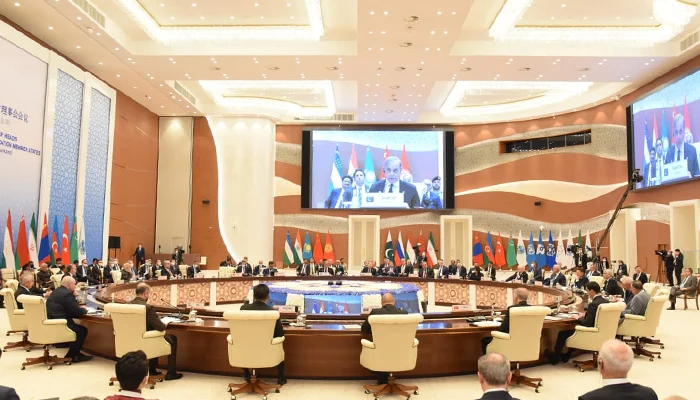On Friday, Prime Minister Shehbaz Sharif declared that climate change is to blame for the devastating floods that have hit Pakistan “I urge you to take immediate action.
In his speech to the Council of Heads of State of the Shanghai Cooperation Organization (SCO), the prime minister mentioned the climate calamity that has wreaked havoc on Pakistan and claimed the lives of hundreds.
Pakistan, the prime minister said, looks like “a sea of water” because of the floods, which have inflicted billions of dollars in damage.
“There is no doubt that climate change contributed to the catastrophic flooding in Pakistan.” Climate change, cloud bursts, and unusually heavy rainfall, along with runoff from nearby hills, are to blame. Considered as a whole, all of this makes Pakistan appear as vast as an ocean “prime minister stated.
The premier pleaded with the group to help those affected by the disaster, saying he has “never seen this sort of damage before.” “against the threat of global warming, “build a wall”
The Prime Minister highlighted the need for the SCO to think ahead for future generations.
President Shavkat Mirziyoyev of Uzbekistan greeted Prime Minister Shehbaz and the other seven SCO heads of state as they arrived at the Congress Centre for the closed-format CHS.
Other heads of state in attendance included Vladimir Putin of Russia, Xi Jinping of China, Mirziyoyev of Uzbekistan, Ebrahim Raisi of Iran, Ilham Aliyev of Azerbaijan, Emomali Rahmon of Tajikistan, Alexander Lukashenko of Belarus, and Narendra Modi of India.
Nearly 33 million people in the 220 million-strong South Asian nation of Pakistan have been affected by the floods that have destroyed homes, crops, bridges, highways, and livestock to the tune of $30 billion due to record monsoon rains in the south and southwest and glacial melt in the north.
The NDMA (1,508 deaths) reported 536 child deaths and 308 female deaths.

Some estimates put the number of displaced persons at over a hundred thousand, and they need immediate access to medical care, sanitation facilities, food, and clean water.
Due to the lack of shelter, many have been forced to sleep in the open at the side of elevated highways, and thousands have fallen victim to water-borne diseases.
Scientists warned Thursday that climate change certainly amplified the severity of the heavy monsoon that drowned large parts of Pakistan.
Mahnur is MS(development Studies)Student at NUST University, completed BS Hons in Eng Literature. Content Writer, Policy analyst, Climate Change specialist, Teacher, HR Recruiter.










